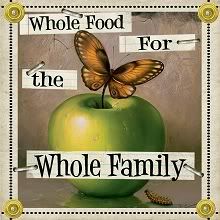When considering what types of sweeteners to add to your food storage there are several reasons why honey should be at the top of your list. Not only is honey healthy, but it also has great flavor and will store almost indefinitely.
Honey doesn’t undergo the processing that sugar does, therefore it contains more nutrients. Mineral content is higher in darker honey. Digestion of honey is also easier than digestion of refined sugars. Honey provides a boost to your immune system that refined sugars won’t. The boost comes from the antioxidants that are found naturally in honey. Other health benefits of using honey include fatigue prevention and increased energy, and enhanced physical performance.
Note: Do not feed honey to babies under 1 year of age--it may cause infant botulism.
Honey can be used whenever you have a recipe that calls for sugar. Since honey is more concentrated than sugar use approximately 3/4 cup honey for every cup of sugar called for in any recipe. You may substitute up to half of the sugar called for without needing to make any other adjustments to the recipe. If substituting more than half of the sugar with honey, reduce the amount of liquid called for by one-quarter. Using honey also gives a sweeter taste to the foods you are eating.
Storing honey is simple. It can be stored in almost any container from glass and plastic jars to larger 5 gallon food grade buckets. Around 75° F is the ideal storage temperature, but any crystallization that occurs at cooler temperatures can be reversed. Simply place your container of honey in a pan of warm water (approx. 130° F) or in a sunny spot in your home. This will liquefy your honey. Be sure not to boil the honey as this can ruin the taste. Rotating honey is simple when substituting it for sugar but it can still be stored for a lengthy amount of time.
Making honey a part of your food storage can provide all these benefits and more.
(Courtesy of beprepared.com)Easy Honey Uses
Antibacterial: Apply honey to cuts, scrapes or burns and cover with a clean bandage. Change dressings one to three times daily, as needed. Note: excessive heat or prolonged exposure to light can rob honey of its antibacterial properties. Always store in a dark, cool place.
Disinfectant: Take several tablespoons of honey daily for internal disinfection.
Nursing salve: Nursing mothers, try covering cracked, sore nipples with honey-soaked gauze to prevent infection.
Sore throats: Many opera singers add honey to a glass of warm milk and sip slowly. This helps soothe the throat.
Insomnia: Mix a half glass of warm water with 2 tablespoons of honey and the juice of a lemon and an orange. The darker the honey, the better this works.
Honey pick-me-up: Combine 2 tablespoons honey, 2 teaspoons pollen, a teaspoon of ginseng, and dried orange peel. Take with a spoon. Asian healers believe that this creates a feeling of total rejuvenation.
Diarrhea: In 8 ounces of water, mix 4 large tablespoons of honey. This works well for bacterial diarrhea. Those with diabetes should be cautious about taking so much honey at one time.
Dieting: Honey's double action (providing instant energy boost, while maintaining sugar levels for along time) satisfies the hunger for sweets and may keep you feeling fuller longer. For some dieters, this may be good news.
(Courtesy of motherearthnews.com)




No comments:
Post a Comment